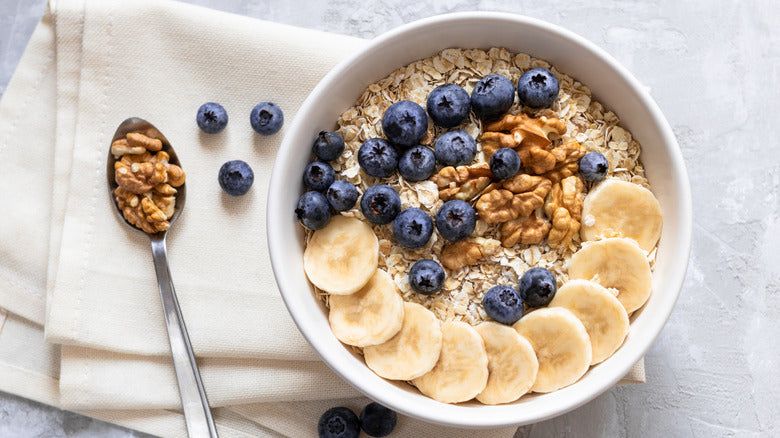When it comes to optimizing our nutrition, meal timing often takes centre stage in discussions about training performance, recovery, and achieving body composition goals. In this blog post, we'll delve into the significance of meal timing and how it impacts these critical aspects of your fitness journey.
1. Training Performance: Fuelling Your Workouts
Timing your meals around your training sessions can significantly impact your performance at the gym. Consuming a balanced meal or snack containing both carbohydrates and protein before your workout provides your body with the necessary energy to power through intense exercises. Carbohydrates serve as the primary fuel source during high-intensity activities, while protein aids in muscle protein synthesis.
Recommendation: Consume a meal or snack with a good balance of carbohydrates and protein about 1-2 hours before your workout for optimal performance.
2. Recovery: The Post-Workout Window
Post-exercise nutrition is crucial for effective recovery. After a workout, your body is primed to absorb nutrients that replenish glycogen stores and kickstart muscle repair. Including a combination of protein and carbohydrates in your post-workout meal or snack helps enhance recovery by reducing muscle soreness and promoting the rebuilding of damaged tissues.
Recommendation: Aim to eat a protein-rich meal or snack within 30 minutes to an hour after your workout to support optimal recovery.
3. Body Composition Goals: Muscle Gain or Fat Loss
Meal timing plays a role in achieving specific body composition goals, whether it's building lean muscle or shedding excess fat.
For Muscle Gain:
- Pre-Workout: Consume a balanced meal with carbohydrates and protein to fuel your workout.
- Post-Workout: Prioritize protein to support muscle repair and growth.
For Fat Loss:
- Spread Meals Throughout the Day: Eating smaller, balanced meals every 3-4 hours can help regulate blood sugar levels and prevent overeating.
- Pre-Workout: A light meal or snack with protein and complex carbohydrates can provide energy without excess calories.
- Post-Workout: Focus on protein to support recovery without overshooting your calorie goals.
Recommendation: Tailor your meal timing strategy to align with your specific body composition objectives.
While the overall quality and quantity of your diet remain paramount, strategically timing your meals can amplify the impact on training performance, recovery, and body composition goals. Experiment with these recommendations, listen to your body, and find a meal timing routine that enhances your overall fitness journey. Whether you're chasing personal records at the gym or aiming for a leaner physique, understanding the importance of meal timing can be a game-changer in reaching your health and fitness aspirations.

